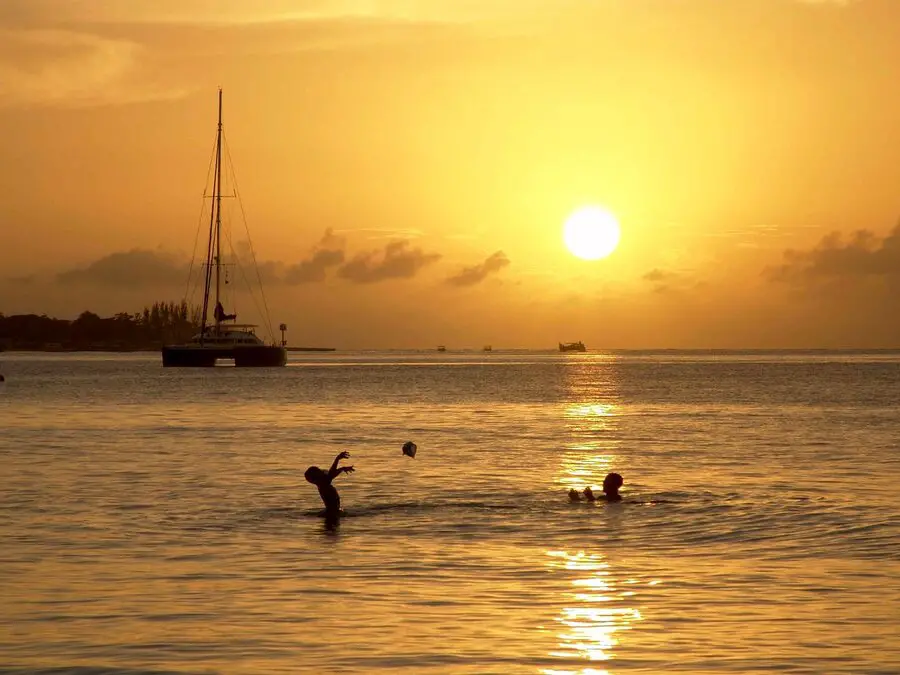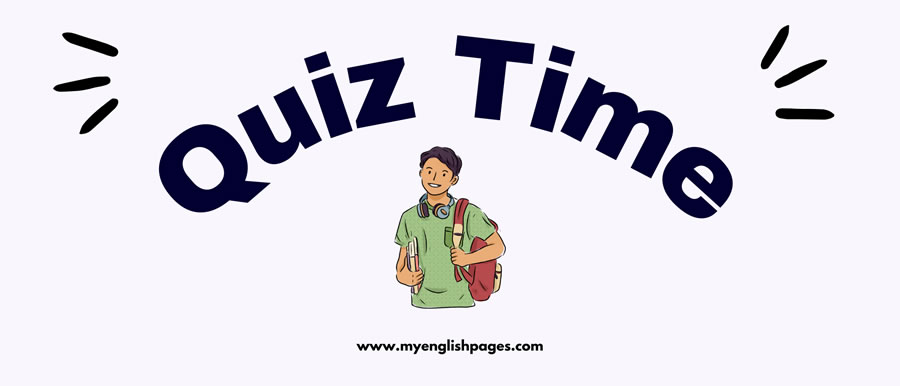English-Speaking Countries — Jamaica
Table of Contents
Introduction
Jamaica is a beautiful and culturally rich island nation located in the Caribbean Sea. Known for its reggae music, tropical beaches, and warm climate, Jamaica is also a country with a unique political history and a vibrant diaspora.
This fact sheet gives you a concise yet comprehensive overview of Jamaica’s geography, population, political system, and more.
Fact Sheet about Jamaica
Here are some interesting facts about Jamaica:
1. Description of Jamaica
Jamaica is a vibrant island nation located in the Caribbean Sea, known for its lush tropical landscapes, beautiful beaches, and rich cultural heritage. From the Blue Mountains to the golden sands of Negril, the country offers breathtaking natural beauty. Jamaica is the birthplace of reggae music, Rastafarianism, and world-renowned figures like Bob Marley and Usain Bolt.
The island has a warm, tropical climate and a laid-back, friendly atmosphere that reflects the spirit of its people. Jamaican culture is a dynamic blend of African, European, and indigenous influences, expressed through its music, food, language, and religious traditions.
Visitors experience a nation that is both deeply historical and vividly modern, whether exploring its colonial towns, tasting jerk chicken, or enjoying its lively festivals.
2. Location and Population

- Continent/Region: Caribbean (North America)
- Geographic Size: 10,990 km² (approx. 4,240 sq mi)
- Rank: 5th largest island in the Caribbean
- Population: ~2.8 million
- Capital and Largest City: Kingston (population ~937,700)
- Language: English (official), Jamaican Patois (widely spoken)
- Time Zone: GMT-5
Jamaica is the third most populous English-speaking country in the Americas, after the United States and Canada. The country has a significant diaspora living abroad, especially in the UK, US, and Canada.
3. Brief History
- Originally inhabited by the Taíno people.
- Became a Spanish colony named Santiago in 1494.
- Conquered by England in 1655 and renamed Jamaica.
- Gained independence from the United Kingdom on August 6, 1962.
- Is now part of the Commonwealth realm, with King Charles III as monarch (following Queen Elizabeth II).
4. Jamaican Culture and Traditions
Jamaica’s culture is a colorful tapestry woven from African, European, and indigenous roots. Known for its music, food, language, and spiritual beliefs, Jamaican culture is both deeply traditional and globally influential.
A. Music and Dance:
- Reggae is Jamaica’s most famous musical export, pioneered by legends like Bob Marley.
- Other popular genres include dancehall, ska, and mento.
- Traditional dances such as Kumina, Dinki Mini, and Quadrille are performed during celebrations and cultural festivals.
B. Food and Culinary Traditions:
- Jamaican cuisine features bold, spicy flavors with staples like:
- Jerk chicken and pork
- Ackee and saltfish (the national dish)
- Callaloo, bammy, and festival (fried dumplings)
- Meals often reflect African, Indian, and British influences.
C. Language and Expressions:
Language and religion play a significant role in shaping Jamaican identity. While English is the official language, local speech and religious practices reflect the country’s rich cultural blend of African, European, and Caribbean influences.
- The official language is English, but most Jamaicans speak Patois (Jamaican Creole) in daily life.
- Patois is an expressive and rhythmic dialect rich with local idioms and proverbs.
D. Religion and Beliefs:
- Christianity is the dominant religion, particularly Protestant denominations.
- Rastafarianism, a spiritual and cultural movement born in Jamaica, is also significant.
- Traditional African spiritual practices still influence folk beliefs and healing traditions.
E. Customs and Celebrations:
- Independence Day (August 6) is a major national celebration.
- Emancipation Day, Carnival, and Reggae Sumfest are popular annual events.
- Family gatherings, storytelling, and community life remain central to Jamaican traditions.
5. Political System
Jamaica is a parliamentary constitutional monarchy.
- Head of State: The monarch (represented locally by the Governor-General).
- Prime Minister: Head of government.
- Parliament: Bicameral, consisting of:
- Senate (appointed)
- House of Representatives (elected)
Laws are debated and passed through these two houses in a Westminster-style democracy.
6. Currency
- Currency Name: Jamaican Dollar (JMD)
- Symbol: $
- Exchange Rate (approximate): 1 USD ≈ 150 JMD (subject to change)

FAQs About Jamaica
What is Jamaica best known for?
Jamaica is known for its reggae music (especially Bob Marley), beaches, Blue Mountains coffee, athletics, and unique cultural identity.
Is Jamaica part of the UK?
No, Jamaica is independent but remains part of the Commonwealth realm, which recognizes the British monarch as ceremonial head of state.
What language do Jamaicans speak?
English is the official language, but Jamaican Patois is widely spoken in everyday communication.
Is Jamaica safe for tourists?
Yes, most areas popular with tourists are safe, though like any country, travelers should remain aware and take standard precautions.
What kind of government does Jamaica have?
Jamaica has a parliamentary democracy with a constitutional monarchy system.
When did Jamaica gain independence?
Jamaica became independent from the United Kingdom on August 6, 1962.
How big is Jamaica?
Jamaica has a total area of approximately 10,990 square kilometers (about 4,240 square miles). It is the third-largest island in the Caribbean and the fifth-largest island country in the region. Despite its relatively small size, Jamaica is densely populated and rich in natural beauty, featuring mountains, rivers, and stunning beaches.
10 Key Vocabulary Words
| Word | Definition | Example Sentence |
|---|---|---|
| Island nation | A country made up entirely of one or more islands. | Jamaica is a vibrant island nation in the Caribbean. |
| Diaspora | People from a country who live abroad. | Jamaica has a large diaspora living in the US and UK. |
| Commonwealth realm | A country that recognizes the British monarch as head of state. | Jamaica is part of the Commonwealth realm. |
| Bicameral | Having two legislative chambers. | Jamaica’s Parliament is bicameral. |
| Monarchy | A form of government with a monarch at the head. | Jamaica retains a constitutional monarchy. |
| Colony | A country or area under the control of another nation. | Jamaica was once a Spanish and then a British colony. |
| Independence | Freedom from control by another country. | Jamaica gained independence in 1962. |
| Parliament | A legislative body of government. | Laws in Jamaica are passed through Parliament. |
| Emigration | Leaving one’s country to live elsewhere. | Economic hardship has led to widespread emigration. |
| Constitutional | Based on or in accordance with a constitution. | Jamaica is a constitutional monarchy. |
More about the topic on Wikipedia.
Quiz: How Well Do You Know Jamaica?

Choose the correct answer:
- What is the capital city of Jamaica?
- a) Montego Bay
- b) Kingston
- c) Negril
- d) Spanish Town
- When did Jamaica gain independence from the UK?
- a) 1947
- b) 1962
- c) 1979
- d) 1983
- What is the official currency of Jamaica?
- a) US Dollar
- b) Euro
- c) Jamaican Dollar
- d) Caribbean Franc
- Which monarch is the current ceremonial head of state in Jamaica?
- a) Queen Elizabeth I
- b) King Charles III
- c) Prince William
- d) Queen Victoria
- What is the form of Jamaica’s government?
- a) Military dictatorship
- b) Absolute monarchy
- c) Presidential democracy
- d) Parliamentary constitutional monarchy
- Jamaica was once a colony of which two European countries?
- a) Spain and France
- b) Spain and England
- c) France and England
- d) Portugal and England
- What language is most commonly spoken in everyday life in Jamaica?
- a) French
- b) Portuguese
- c) Jamaican Patois
- d) Spanish
2 → b
3 → c
4 → b
5 → d
6 → b
7 → c
Related Pages
Here are more pages about Jamaica:


